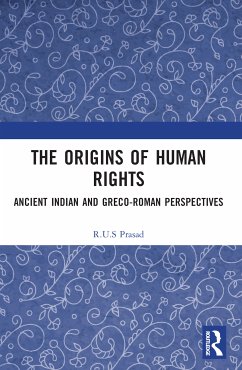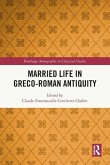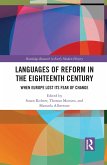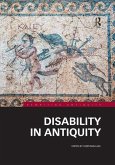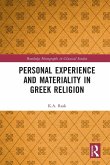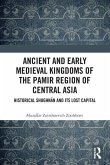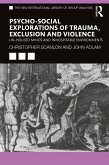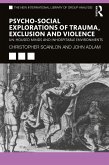This book studies the history of intercultural human rights. It examines the foundational elements of human rights in the East and the West and provides a comparative analysis of the independent streams of thought originating from the two different geographic spaces. It traces the genesis of the idea of human rights back to ancient Indian and Greco-Roman texts, especially concepts such as the Rigvedic universal moral law, the Upanishadic narratives, the Romans' model of governance, the rule of law, and administration of justice. It also looks at Cicero's concept of rights and duties which focuses on quality of compassion and fair play, and Seneca's expositions on mercy, empathy, justice, and checks on the arbitrary exercise of power.
An important contribution, this book fills a significant gap in the study of human rights. It will be useful for students and researchers of political science, ancient history, religion and civilizations, philosophy, history, human rights,governance, law, sociology, and South Asian studies. The book also caters to general readers interested in the history of human rights.
An important contribution, this book fills a significant gap in the study of human rights. It will be useful for students and researchers of political science, ancient history, religion and civilizations, philosophy, history, human rights,governance, law, sociology, and South Asian studies. The book also caters to general readers interested in the history of human rights.
"Dr. R.U.S. Prasad has distilled the essence of value systems of the East and the West ... to show their contribution to the Human Rights doctrine. It is a scholarly, well-researched treatise that examines the ancient texts of India-Rigvedic and post Rigvedic as also Upanishads and DharmaShastras to find the origins of the value systems that have prevailed in India...has similarly analysed Greek philosophical heritage left by Socrates, Plato and Aristotle and the political philosophy and its historical background by Roman scholars Cicero and Seneca."
Mrs. (Justice) Sujata Manohar, Former Judge, Supreme Court of India, Member, National Human Rights Commission
"This is a very far-ranging and ambitious work. By assembling and organizing such a wide range of data, Dr. Prasad has done a great service for all who are interested in understanding the contexts out of which our modern conception of human rights has emerged."
Arthur Madigan, S.J. Albert J. Fitzgibbons Professor of Philosophy, Boston College, MA
"R.U.S. Prasad has to be congratulated to detect not only perspectives of human rights in ancient Indian and Greco-Roman texts but to analyze also critically commonalities and the extent of their convergence. These geographically far removed ideas in the spheres of governance, social and moral norms are regarded by the author in his comprehensive study as aspects of foundational elements of human rights. He concludes his detailed and revealing analysis that no theory of human rights in our modern sense arose in the markedly different situation in classical Greek and Rome and in India. But 'certainly none will deny them their place as building blocks in the evolution of the concept of human rights. These ideas would continue to have a perennial value in the thought and action of humankind'."
Hermann Kulke, Kiel University, Germany
"RUS Prasad is a big thinker who has grappled with some of today's most important issues and concepts. In this new book he probes the deep origins of the concepts of human rights from several distinct origins in Indian, Greek and Roman thought. Its strength is depth of analysis and a comparative approach. We are often told that we are living in the era of modern human rights; Prasad shows the concepts were original long long ago."
David G. Victor, Professor and Director, Laboratory of International Law and Regulation, University of California, San Diego.
Mrs. (Justice) Sujata Manohar, Former Judge, Supreme Court of India, Member, National Human Rights Commission
"This is a very far-ranging and ambitious work. By assembling and organizing such a wide range of data, Dr. Prasad has done a great service for all who are interested in understanding the contexts out of which our modern conception of human rights has emerged."
Arthur Madigan, S.J. Albert J. Fitzgibbons Professor of Philosophy, Boston College, MA
"R.U.S. Prasad has to be congratulated to detect not only perspectives of human rights in ancient Indian and Greco-Roman texts but to analyze also critically commonalities and the extent of their convergence. These geographically far removed ideas in the spheres of governance, social and moral norms are regarded by the author in his comprehensive study as aspects of foundational elements of human rights. He concludes his detailed and revealing analysis that no theory of human rights in our modern sense arose in the markedly different situation in classical Greek and Rome and in India. But 'certainly none will deny them their place as building blocks in the evolution of the concept of human rights. These ideas would continue to have a perennial value in the thought and action of humankind'."
Hermann Kulke, Kiel University, Germany
"RUS Prasad is a big thinker who has grappled with some of today's most important issues and concepts. In this new book he probes the deep origins of the concepts of human rights from several distinct origins in Indian, Greek and Roman thought. Its strength is depth of analysis and a comparative approach. We are often told that we are living in the era of modern human rights; Prasad shows the concepts were original long long ago."
David G. Victor, Professor and Director, Laboratory of International Law and Regulation, University of California, San Diego.

